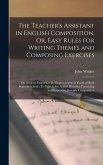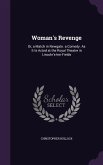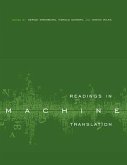A truly liberated rhetoric and reader has at last become available to courses in composition, with the publication of A Woman's Place. This unique textbook explores the notion of writing as self-definition and, as a consequence, the relationship between gender and writing. Convinced that writing is a meaningful process, performed with commitment, Dr. Morahan has created a course that simultaneously sharpens writing and thinking skills and contributes to the consciousness-raising of women and men in today's world. Her "pedagogy for liberation" creates a student-centered classroom, in which a spirit of collaboration replaces one of competition, by means of peer editing, tutorial approaches, and small group activities. The literary passages of A Woman's Place are, both stylistically and thematically, tied in with the lessons directly. At the same time, they function as a compact women's studies course. Research and writing are organized around a cluster of shared themes--problems that all students are addressing in their lives: power vs. powerlessness, passivity vs. action, identity, oppression vs. freedom, and the nurturance of creativity. Taken from the works of professional writers, including such well-known individuals as Adrienne Rich, Tillie Olsen, Joan Didion, Virginia Woolf, Margaret Mead, Mary Wollstonecraft, Jonathan Swift, and Sylvia Plath, they are often accompanied by short excerpts from student essays. Useful bibliographical notes suggest further readings.
Bitte wählen Sie Ihr Anliegen aus.
Rechnungen
Retourenschein anfordern
Bestellstatus
Storno

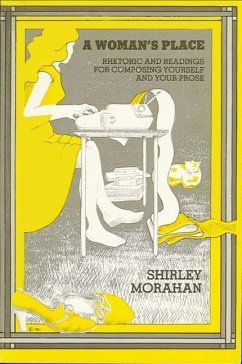
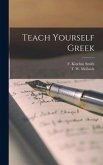
![Catalogue of Books Composing the Library of the Late John Fleming, Esquire [microform]: Which Are to Be Disposed of Without Reserve by Public Sale Wit Catalogue of Books Composing the Library of the Late John Fleming, Esquire [microform]: Which Are to Be Disposed of Without Reserve by Public Sale Wit](https://bilder.buecher.de/produkte/65/65540/65540210m.jpg)
![Catalogue of Books Composing the Library of the Late John Fleming, Esquire [microform]: and Which Are to Be Disposed of Without Reserve by Public Sale Catalogue of Books Composing the Library of the Late John Fleming, Esquire [microform]: and Which Are to Be Disposed of Without Reserve by Public Sale](https://bilder.buecher.de/produkte/65/65498/65498700m.jpg)
